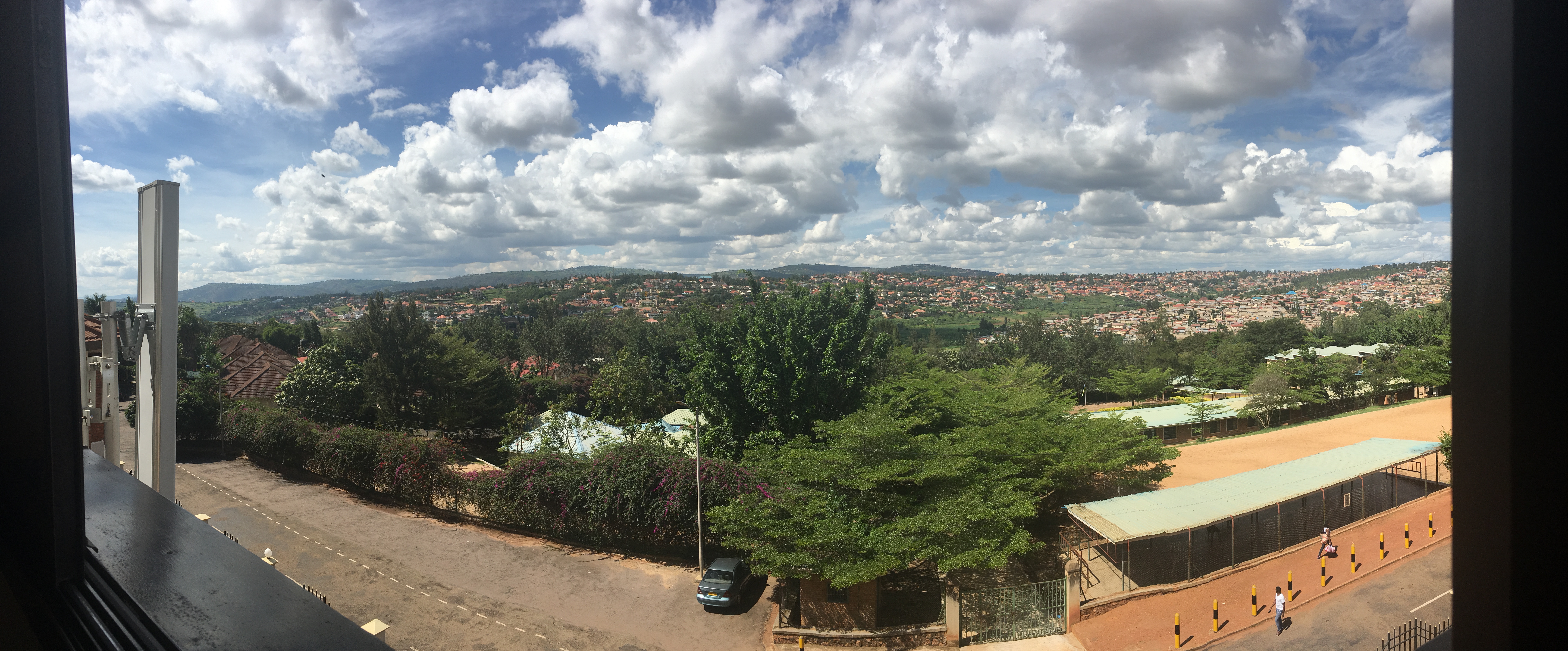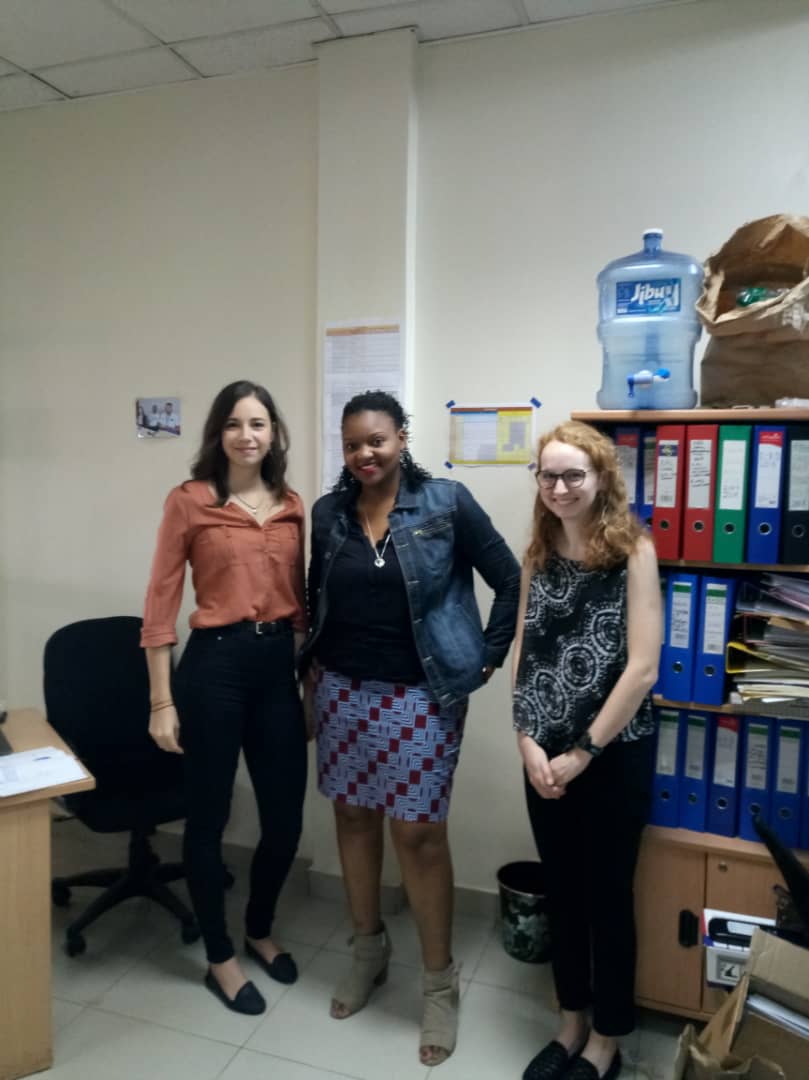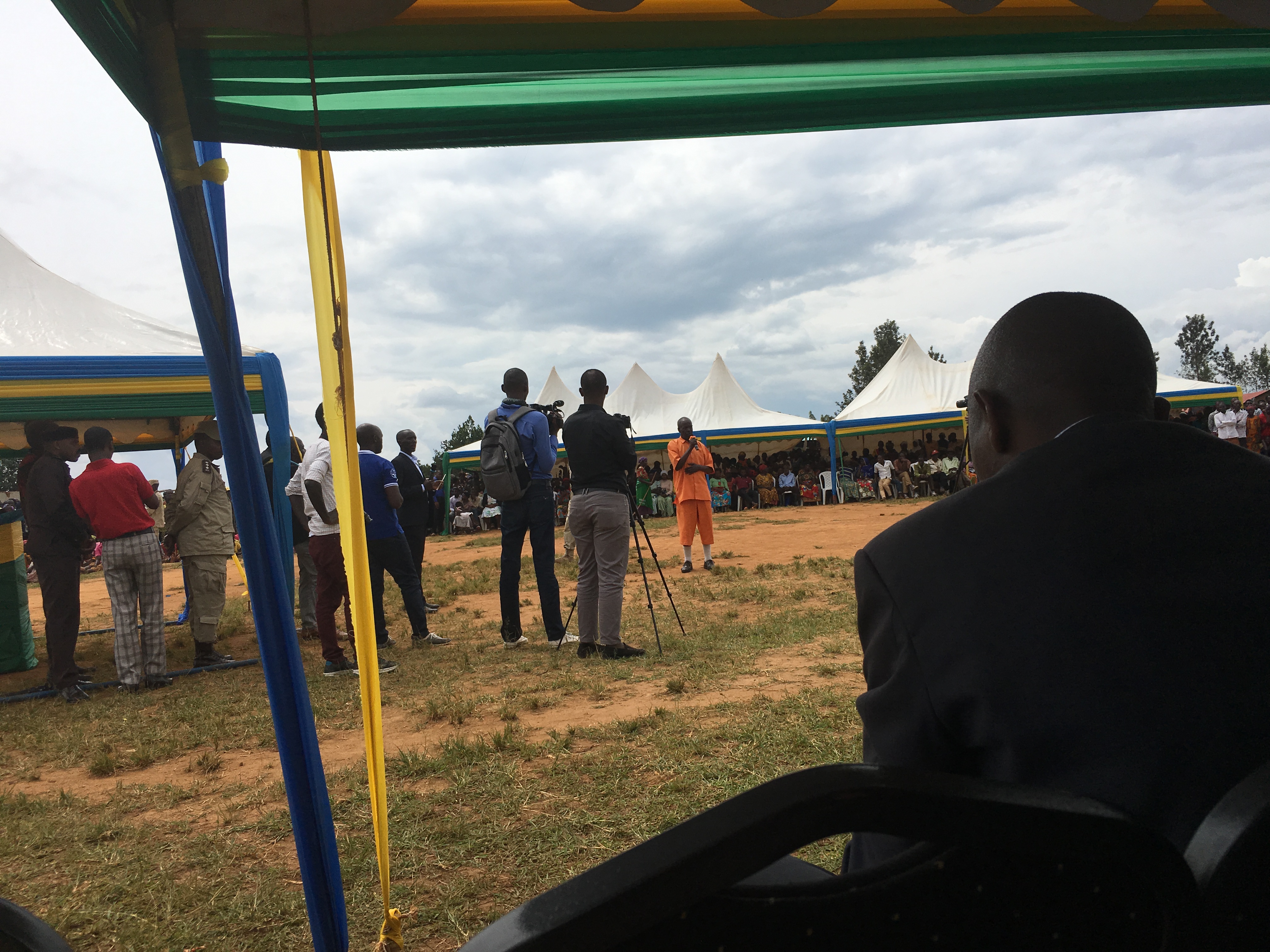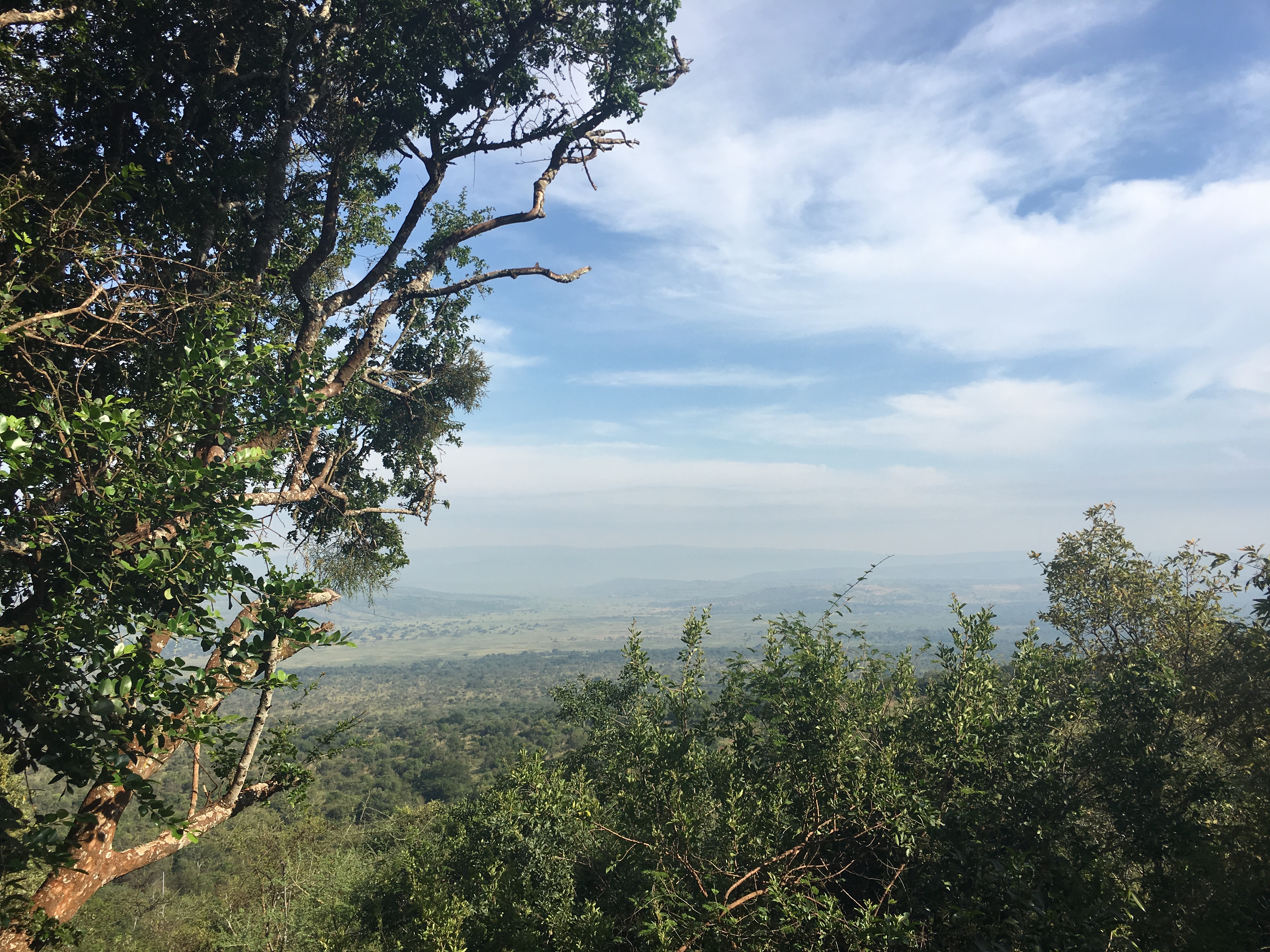The One Where I Go To Rwanda
Adjusting
As I stepped out of Kigali International Airport for the first time into the blinding sun, struggling with my oversized bags, I felt a sense of confusion, loneliness, and complete exhaustion. Writing this blog post just over a week later, that moment feels like a million years and half a second ago at the same time.
My first week in Kigali hasn’t been easy. I assumed that the transition experience would be very similar to my other countless moves I have successfully completed throughout my life. I expected a few days of jet lag and some moments of homesickness, but nothing I couldn’t handle. However, moving to Africa has been a complete culture shock. The language barrier, the weather, the mode of transportation, and the general lifestyle have all proved to be difficult to adapt to. Although I read and researched extensively about Kigali and Rwanda before leaving the US, actually trying to acclimate myself to the drastic changes is very different. For example, I am so obviously a foreigner everywhere I go. My white skin and red hair are a dead giveaway that I don’t belong, and this is a completely new experience for me, since I grew up in predominantly white communities. It can often be very isolating in a place where I know absolutely no one and don’t speak the local language. This is something I will have to get used to.
The place I’m staying in is a small B&B in Remera, very close to the city center. It’s on a relatively quiet residential street, but I can hear the rushing cars and honking horns (a lot of horns) on one of the main streets just up the road. The scenery outside the window is a majestic view of some of the hundreds of hills Rwanda boasts.  I have a room to myself, but I share my bathroom with whoever happens to rent out the room across from me on any given week. We only get hot water from 6 am to 9 am, but I have yet to get up early enough to indulge in this small luxury, so it has been cold showers for me.
I have a room to myself, but I share my bathroom with whoever happens to rent out the room across from me on any given week. We only get hot water from 6 am to 9 am, but I have yet to get up early enough to indulge in this small luxury, so it has been cold showers for me.
The tap water isn't’t particularly safe to drink here, so I have been stocking up on bottled water. The grocery stores here are a bit sketchy, and I haven’t found one I like very much. The one down the street from me has a few basic necessities, but it’s quite expensive. I paid about $15 for a box of cereal, which was insane! I eat out for most of my meals, which has proved to be more affordable, coming in at around $5 to $10 for a hearty meal. I’ve been sticking to more international cuisine as finding vegetarian local cuisine is quite hard. Next weekend I hope to go to the market to buy some fresh fruits and vegetables and start putting my Blue Apron cooking skills to use.
The main, most affordable mode of transportation here is by moto taxi. Moto taxis are basically mopeds that you can take around the city. They are incredibly cheap, costing about $1 to get all the way across the city. But this comes at a price: they are insane drivers. Most of the accidents in the city occur with moto taxis carelessly weaving in and out of cars, buses and pedestrians. The first few days I was here, I was too scared to take them (pro tip: don’t look up the safety of moto taxis before needing to take them everywhere). I finally got up the courage to take one (mainly out of necessity) toward the end of the week, but I used the SafeMotos app to ensure that my driver drove slower. The app basically calls a moto for you like an Uber, and their speed is monitored by the app employees, so they are less likely to get in accidents. Surprisingly, I really enjoyed my ride! It was nice to hop on the back of a moped and feel the wind flowing through my hair. Balancing on the moped is really no problem at all, and the driver was very careful. My next step is to try it like a local and wave a driver down.
Despite these challenges, I have already felt like I have made great strides in adjusting myself to this new way of living, and I’m confident that by the end of my 10 weeks here, Kigali will start to feel more familiar.
Working
 On top of my adjustment to the city, I had a very busy week at work. This summer, I am working with the Rwanda branch of International Bridges to Justice. IBJ is a non-profit dedicated to providing defense counsel for citizens who do not typically have access to legal representation. Much of the work in Rwanda centers around informing rural citizens of their right to legal counsel and assisting with international and national efforts related to reforming the legal system to ensure non-corruption and helping prisoners after they are released. My job as an intern will be to help with reports, attend meetings, and assist with anything else that the four people working in this branch need help with over the next few months. We conduct most of our business in French, so I’m going to have to brush off my rusty French skills to use at work. It’s been a challenge so far, but I can already feel myself getting better just by being immersed in the language for a week.
On top of my adjustment to the city, I had a very busy week at work. This summer, I am working with the Rwanda branch of International Bridges to Justice. IBJ is a non-profit dedicated to providing defense counsel for citizens who do not typically have access to legal representation. Much of the work in Rwanda centers around informing rural citizens of their right to legal counsel and assisting with international and national efforts related to reforming the legal system to ensure non-corruption and helping prisoners after they are released. My job as an intern will be to help with reports, attend meetings, and assist with anything else that the four people working in this branch need help with over the next few months. We conduct most of our business in French, so I’m going to have to brush off my rusty French skills to use at work. It’s been a challenge so far, but I can already feel myself getting better just by being immersed in the language for a week.
I received my first two projects this week. My first was to work on finalizing two reports on a rights awareness campaign the office put on within the last few weeks. These rights awareness campaigns gathered together experts and lawyers to speak to university students and police officer students on the right to the presumption of innocence. This right is often overlooked in the country. Authorities generally do not respect a suspect’s basic rights when taking them into custody, and suspects often complain of brutal mistreatment when being arrested. Yet, citizens don’t know much about this right, and assume that being suspected of a crime automatically renders you guilty. My other project is to gather success stories of people Rwanda Bridges to Justice has helped. These people are often innocent prisoners who have wrongfully been convicted of a crime.
I also sat in on a few meetings regarding RBJ’s next projects, which included a radio awareness campaign to educate people about their basic rights. On Thursday, I was able to travel to Bugesera with my colleagues, a little village about 45 minutes outside of Kigali, for a Psychosocial Healing and Community Reconciliation event. These events are held by the Prison Fellowship Rwanda and USAID to help killers reconcile and be forgiven for their actions during the genocide of 1994. Bugesera is a reconciliation village, which means that killers and survivors of the genocide live together in the same community. Every few months, a community reconciliation event is held whereby the killers stand up in front of the community, including the police chief, military personnel, and the mayor, and confess to their actions during the genocide and ask for forgiveness from the immediately impacted surviving family members and the community as a whole. Although the event was held entirely in Kinyarwanda (the local language), and I couldn’t understand it, this was a powerful display of healing and reconciliation. My coworkers explained that some prisoners refused to admit they had done anything wrong during the genocide. One prisoner, for instance, claimed that he couldn’t remember anything he did that day, while another said that he killed 9 people, but there is evidence he killed many more. During my undergraduate studies, I learned about these events, and it was incredibly moving to see the event take place before my eyes.
that killers and survivors of the genocide live together in the same community. Every few months, a community reconciliation event is held whereby the killers stand up in front of the community, including the police chief, military personnel, and the mayor, and confess to their actions during the genocide and ask for forgiveness from the immediately impacted surviving family members and the community as a whole. Although the event was held entirely in Kinyarwanda (the local language), and I couldn’t understand it, this was a powerful display of healing and reconciliation. My coworkers explained that some prisoners refused to admit they had done anything wrong during the genocide. One prisoner, for instance, claimed that he couldn’t remember anything he did that day, while another said that he killed 9 people, but there is evidence he killed many more. During my undergraduate studies, I learned about these events, and it was incredibly moving to see the event take place before my eyes.
Safari-ing
This weekend, I went on a safari to Akagera National Park. We met at the travel agency at 5 am (a rough start to my Saturday) to start our adventure, and we loaded in the safari van to drive the 3 hours to the park from Kigali. Akagera straddles the border with Tanzania in the east of Rwanda and is home to over 12,000 mammals and nearly 500 birds. The park used to be much larger, but was reduced after the genocide to compensate survivors who returned from other countries with the land they had previously inhabited. A safari through this park is rather unique compared to other African safaris because it’s not a desert. The large rolling hills, expansive lakes, and lush forests provide a comfortable home for the thousands of animals living here. Unfortunately, the varied landscape means there’s more hiding room for animals. Nevertheless, my safari was able to see multiple species of monkeys, many kinds of birds, warthogs, buffalo, giraffes, elephants, hyenas, zebras (mystery solved: apparently they’re black with white stripes), hippos, impalas, and antelopes. It was so different to see these animals in their natural habitat, casually grazing, taking mud baths, or trying to spot predators, compared to seeing them in a zoo back in the US.
park used to be much larger, but was reduced after the genocide to compensate survivors who returned from other countries with the land they had previously inhabited. A safari through this park is rather unique compared to other African safaris because it’s not a desert. The large rolling hills, expansive lakes, and lush forests provide a comfortable home for the thousands of animals living here. Unfortunately, the varied landscape means there’s more hiding room for animals. Nevertheless, my safari was able to see multiple species of monkeys, many kinds of birds, warthogs, buffalo, giraffes, elephants, hyenas, zebras (mystery solved: apparently they’re black with white stripes), hippos, impalas, and antelopes. It was so different to see these animals in their natural habitat, casually grazing, taking mud baths, or trying to spot predators, compared to seeing them in a zoo back in the US.
I’ve had a busy week, and I hope to have another this upcoming week. Wish me luck as I embark to the market next weekend!